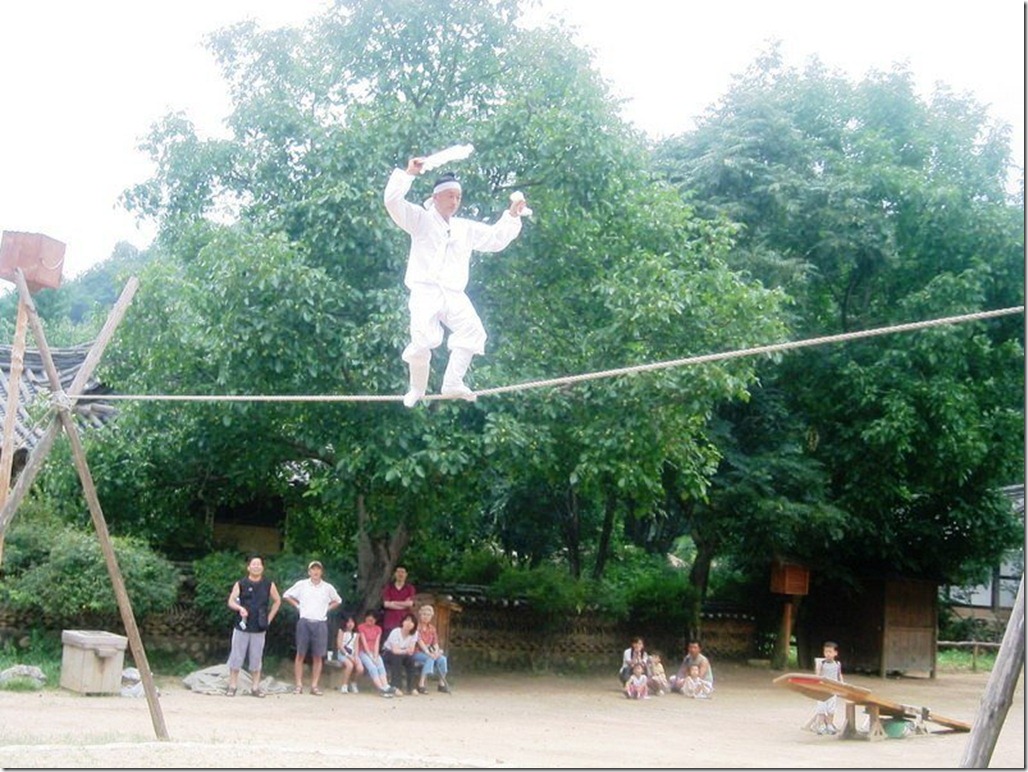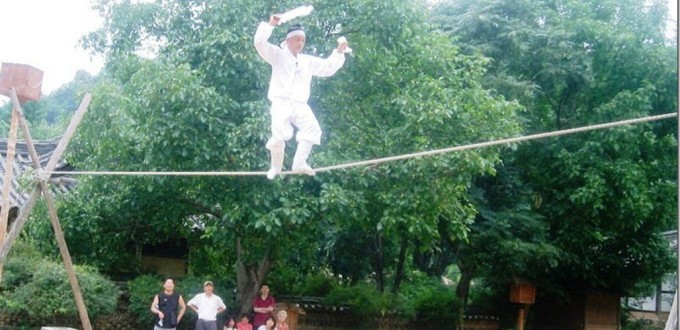Today is a beautiful day, and my family is out and about shopping for Christmas, but I am here studying Korean. (OK, well I took some time out to write on my blog.) I stayed here by choice. Our second Korean language progress test is next Tuesday, and I need all the preparation I can get. My wife is taking the same course, but she doesn’t need to study as much as I do. She is a natural when it comes to learning languages. She is also a native Chinese speaker, and it definitely helps her when Korean uses so much Chinese vocabulary. About 60% of Korean words are derived from Chinese. What sets Korean apart from Chinese is the grammar and structure. Chinese is a Subject-Verb-Object language, whereas Korean is Subject-Object-Verb (as is Japanese). Korean, like Japanese, also uses numerous levels of speech politeness, whereas Chinese uses far fewer levels. In this respect, Chinese is much closer to English. In Korean the grammar patterns used when speaking to an elderly person is far different (and longer) than patterns used with children (short and blunt).
Unlike my wife, I am struggling in Korean. Much of it is plain old rote memorization. Word association (using English to easily remember a word) only goes so far, and after awhile all the words start looking and sounding alike. Fortunately, the Korean language system is alphabetic, so it’s much easier to write than either Chinese or Japanese. Nevertheless, Korean pronunciation may among the most difficult for native English speakers. The U.S. government classifies languages by level of learning difficulty vis-a-vis English, and Korean is one of the four most difficult languages for English speakers to learn (as well as Arabic, Chinese, and Korean). It requires you to contort your voice in ways you may have never done before. That, and the pronunciation of a word changes depending on what word follows it. For example, water is pronounced “mul” by itself (물). If it is a subject it is pronounced “muri” (물이), and if it is an object it is pronounced “murir” (물을). Speaking Korean is a verbal gymnastics exercise for a native English speaker. I have even more respect now for those who master Korean and Japanese. I often whine about learning Korean, but I know I’ll make it through. I just want to be able to communicate adequately once we’re in Korea. I don’t need to be a Korean scholar.

More About Korea
| This Darn Korean Language | Other Articles |
World Adventurers Magazine
 |  |  |
|
 |  |  |  |
 |  |  |  |



